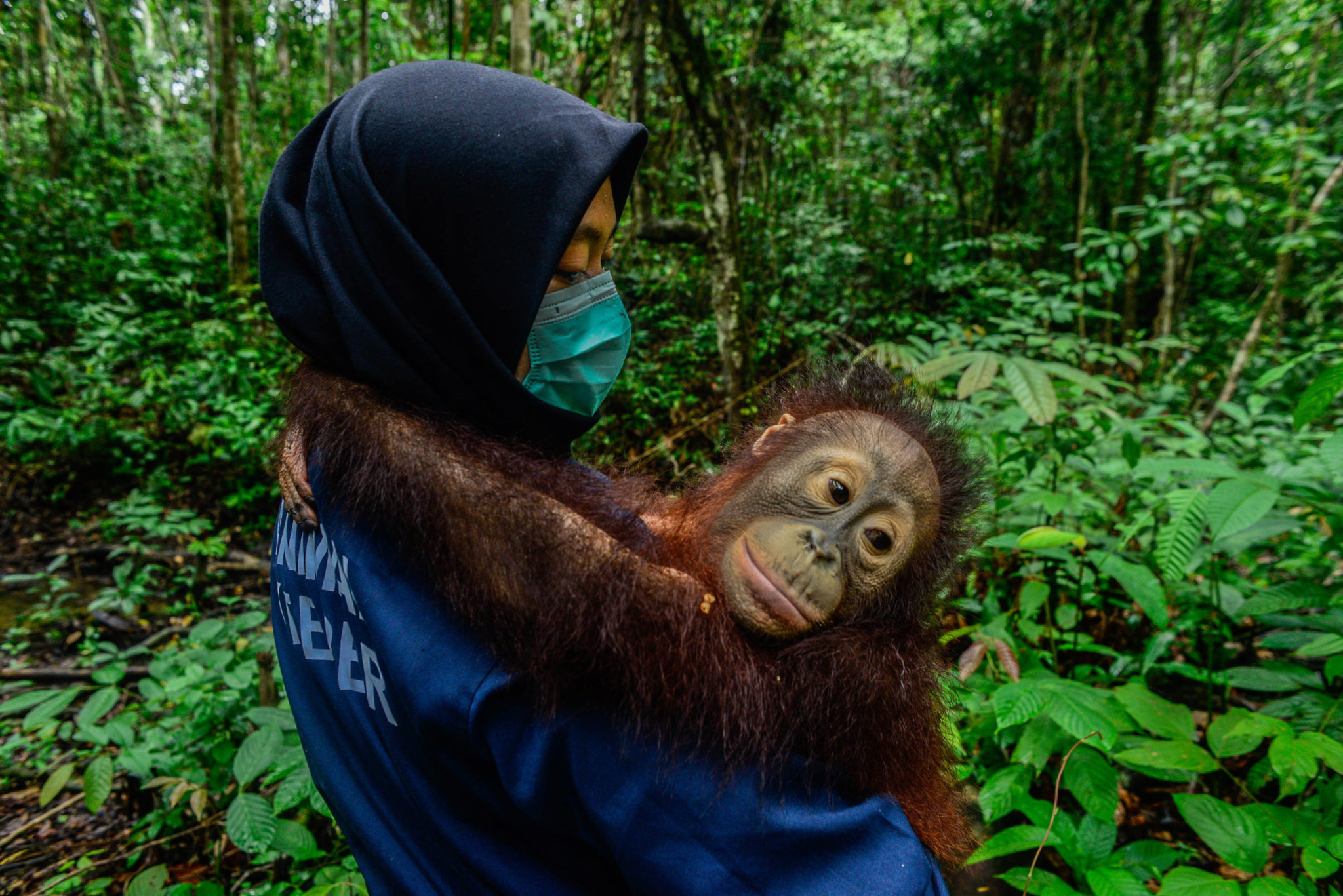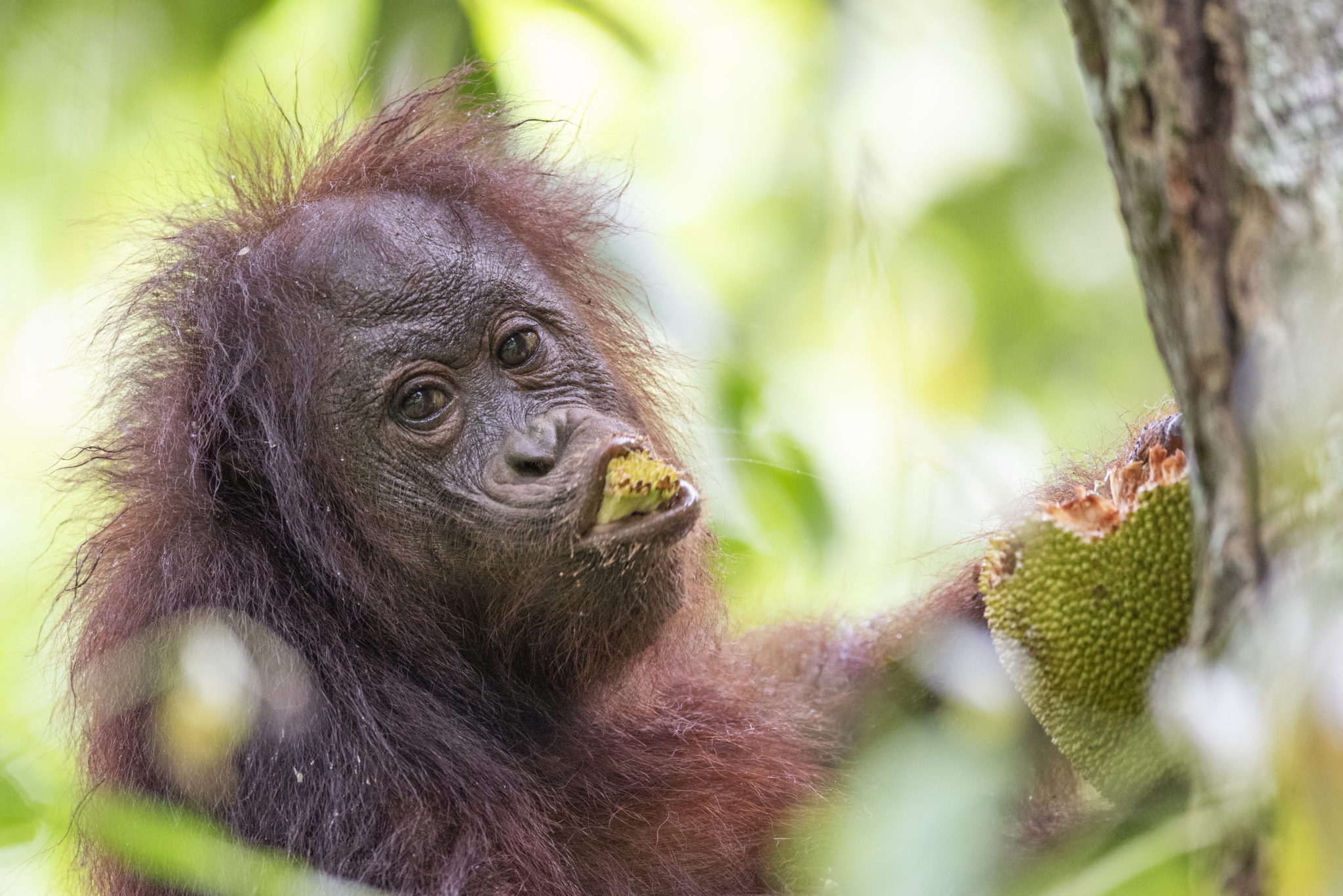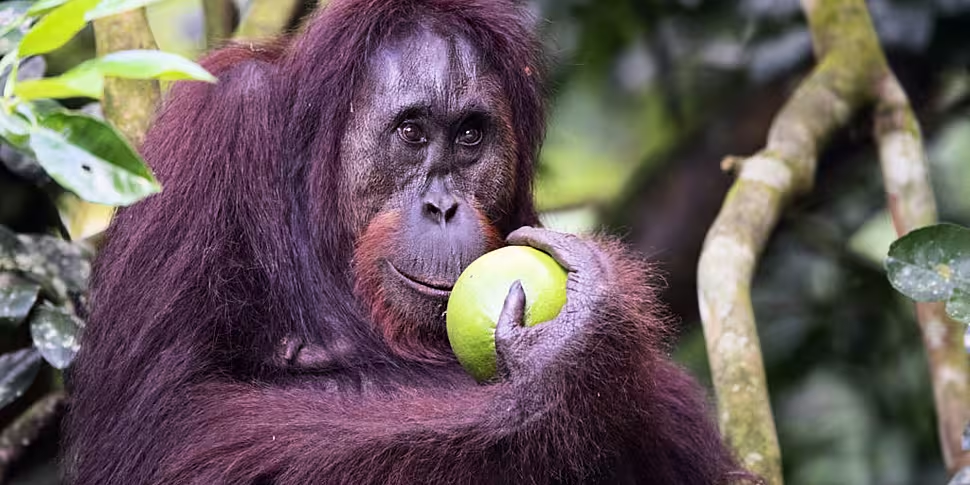Food giant Kellogg’s has agreed to end the use of “unsustainable” palm oil in its products after a campaign by two young sisters in the UK.
Bedfordshire sisters Jia and Asha Kirkpatrick, aged 10 and 12-years old, convinced nearly 785,000 people to sign a petition urging Kellogg’s to change its practices.
They pointed to a Greenpeace study which found that some of the world’s largest brands – including Nestlé, Colgate, Kellogg’s and Unilever – destroyed an area of rainforest the size of Singapore in less than three years.
 A volunteer at the Centre for Orangutan Protection (COP) holds an orphaned baby orangutan in the hope she can be returned to the wild in East Kalimantan, Indonesia, 13-01-2020. Image: Centre for Orangutan Protection/Zuma Press/PA Images
A volunteer at the Centre for Orangutan Protection (COP) holds an orphaned baby orangutan in the hope she can be returned to the wild in East Kalimantan, Indonesia, 13-01-2020. Image: Centre for Orangutan Protection/Zuma Press/PA ImagesThe brands were buying their palm oil from 25 producers responsible for clearing over 130,000 hectares of rainforest over two years and nine months from the start of 2016.
The environmental charity has warned that 25 orang-utans are killed every day as more rainforest is cleared for the palm oil industry.
The sisters, who launched their campaign after watching a television documentary on the plight of the orang-utan, said the Kellogg’s decision was “great news” and said they would keeping a keen eye on the company’s progress in the coming years.
 A young orangutan eats jackfruit near the Gomantong caves, in Malaysia north of Borneo, 05-08-2020. Image: Emy/ABACA/ABACA/PA Images
A young orangutan eats jackfruit near the Gomantong caves, in Malaysia north of Borneo, 05-08-2020. Image: Emy/ABACA/ABACA/PA ImagesUnder Kellogg’s new Global Palm Oil Policy the company is promising to:
- Work with small farmers to improve efficiency in the hope that less forest is cleared to meet demand.
- Partner with NGO Pro Forest – with the organisation acting as independent, environmental advocate that can monitor the actions of palm oil producers.
- Phase out the use of Green palm credits to ensure the company is 100% certified sustainable within five years.
- Invest in the restoration of rainforests and the wildlife that thrives in them.
- Protect workers from exploitation.
- Join the Palm Oil Transparency Coalition and require all suppliers to take part in the No Deforestation, No Peat, No Exploitation (NDPE) framework.
- Work with the industry to lobby for legislation to protect rainforests.
In a statement, Kellogg’s said it is committed to sourcing palm oil from suppliers that are “environmentally responsible, socially beneficial and economically viable.”
It said the palm oil it uses in its European products is produced in a “sustainable way.”
“We can trace the palm oil we buy for use in our foods from the moment it leaves the accredited sustainable palm oil mill, through our supply and manufacturing processes and into our food,” it said.









